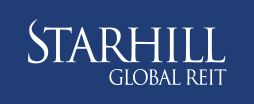Overview of Board Composition and Independence
The composition of the Board and the Board Committees as at 30 June 2025 is set out below:

Manager of Starhill Global REIT
YTL Starhill Global REIT Management Limited was appointed the Manager of Starhill Global REIT in accordance with the terms of the Trust Deed.
The Manager of Starhill Global REIT has general power of management over the assets of Starhill Global REIT. The primary role of the Manager is to set the strategic direction of Starhill Global REIT and make recommendations to the Trustee on acquisitions, divestments and enhancement of the assets of Starhill Global REIT, in accordance with its stated business strategy and the terms of the Trust Deed. Other important functions and responsibilities of the Manager include:
- using its best endeavours to ensure that the business of Starhill Global REIT is carried out and conducted in a proper and efficient manner and to conduct all transactions with or for Starhill Global REIT at arm’s length;
- preparing property business plans on a regular basis, which may contain proposals and forecasts on net income, capital expenditure, sales and valuations, explanations of major variances to previous forecasts, written commentary on key issues and underlying assumptions on rental rates, occupancy costs and any other relevant assumptions (the purpose of these plans is to manage the performance of Starhill Global REIT’s assets);
- ensuring compliance with applicable laws and regulations, such as those set out in the listing manual ("Listing Manual") of the SGX-ST, the CIS Code, written directions, notices, code and other guidelines that MAS may issue from time to time, tax rulings issued by IRAS on the taxation of Starhill Global REIT and Unitholders, the Singapore and Futures Act 2001, the Securities and Futures (Licensing and Conduct of Business) Regulations ("SFLCBR"), the Code, and the Trust Deed;
- attending to all communications with Unitholders; and
- supervising the property managers in performing the day-to-day property management functions (such as leasing, marketing, maintenance, promotion and accounting) for the properties, pursuant to the property management agreements.
Starhill Global REIT, which is constituted as a trust, has no direct staff of its own (other than the staff of its China subsidiary). It is externally managed by the Manager who appoints experienced and well-qualified management staff with competencies in investment management, asset management, finance and capital management, and investor relations to run its operations. All Directors and employees of the Manager are remunerated by the Manager and not by Starhill Global REIT.
The Trust Deed provides, inter alia, for the removal of the Manager in certain situations, including by way of resolution passed by a simple majority of Unitholders present and voting at a general meeting duly convened, with no Unitholder being disenfranchised.
On 16 September 2010, the Manager obtained a Capital Markets Services Licence ("CMS Licence") from the MAS to conduct REIT management activities under the SFA. The Manager has at least three full-time representatives who hold a CMS Licence and have at least five years of experience relevant to REIT management.
Corporate Governance Culture
The Manager believes that strong and effective corporate governance is essential in protecting the interests of the Unitholders, and is critical to the success of its performance as the Manager.
The Manager is committed to the highest standards of corporate governance and transparency in the management of Starhill Global REIT and operates in the spirit of the Code in the discharge of its responsibilities as Manager. In FY 2024/25, the Manager has complied with the Code in all material respects. Where there are deviations from the provisions of the Code, appropriate explanations are provided in this report.
Please find the latest Corporate Governance Report here: FY2024/25 Corporate Governance
